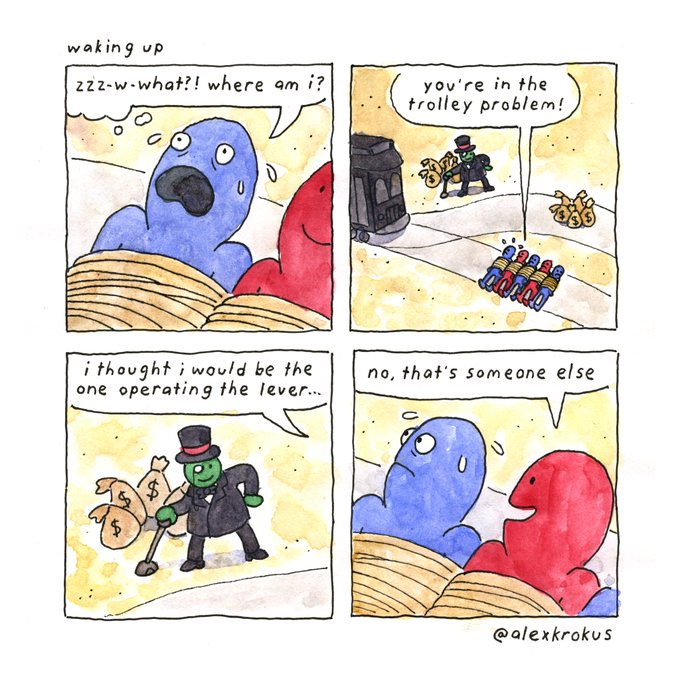"someone who is good at the economy please help me calculate this. my battery is dying." ?
there are lots of good articles about this news from other sources.
unfortunately the link in this post is an advertorial for snakeoil: tuta published this for the sole purpose of marketing their non-interoperable encrypted email service which has an incoherent threat model.
they do not work for individual applications
as someone else replied to you earlier, waypipe exists, and is packaged in distros, and does what you're asking for.
There is also a newer thing called wprs, "Like xpra, but for Wayland, and written in Rust": https://github.com/wayland-transpositor/wprs#comparison-to-waypipe which sounds promising
i read it twice and somehow didn't notice the word "do" appears twice 🤡
where would commas go to make it make sense? 🤔
seems rather defaming to say its invincibility and circular shape are "mysterious" when they're both established by law; maybe the volcano can sue The Sun? 🤔





(disclaimer: this information might be years out of date but i think it is still accurate?)
SSH doesn't have a null cipher, and if it did, using it still wouldn't make an SSH tunnel as fast as a TCP connection because SSH has its own windowing mechanism which is actually what is slowing you down. Doing the cryptography at line speed should not be a problem on a modern CPU.
Even though SSH tunnels on your LAN are probably faster than your internet connection (albeit slower than LAN TCP connections), SSH's windowing overhead will also make for slower internet connections (vs rsync or something else over TCP) due to more latency exacerbating the problem. (Whenever the window is full, it is sitting there not transmitting anything...)
So, to answer OP's question:
--rsh=sshas that is the default).man rsyncand read the section referred to by this:HTH.